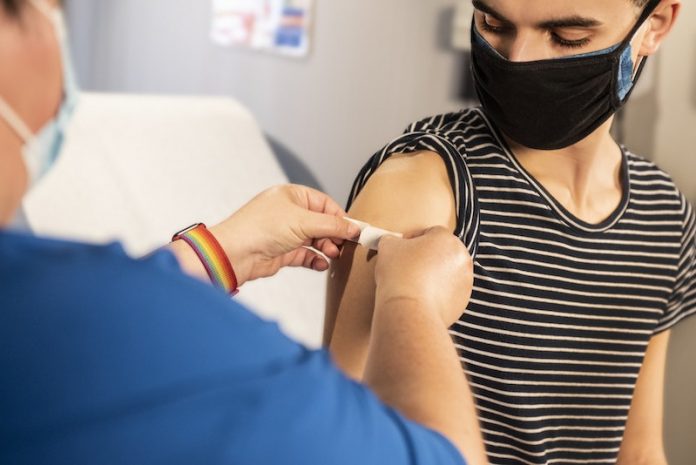
When the two messenger RNA vaccines for COVID-19 first became readily available, many people were talking about side effects—everything from headaches to chills to feeling exhausted for a couple days.
Yet plenty of others seemed to take the shots in stride, barely registering much beyond a sore arm.
It was popular to assume that feeling lousy was a good thing, a sign that your body was working overtime to develop its defenses against COVID.
But in a new study from Johns Hopkins Medicine, researchers found that the mRNA vaccines yield a robust antibody response even when people don’t develop significant symptoms following vaccination.
They examined nearly 1,000 health care workers who received two doses of either the vaccine manufactured by Pfizer/BioNTech or Moderna.
The health care workers who had received both doses of either the Pfizer or Moderna vaccines, including some who had a known prior SARS-CoV-2 infection.
Infection was defined as having a positive SARS-CoV-2 PCR test result prior to 14 days after a second vaccine dose or a high IgG antibody count against S1 prior to vaccination.
Participants self-reported symptoms following vaccination as none, mild (injection site pain, mild fatigue, or headache), or clinically significant (fatigue, fever, or chills).
The two mRNA vaccines evaluated in the study introduce the body’s immune system to S1, a protein subunit that’s a component of the spikes found on the surface of SARS-CoV-2.
Clinically significant symptoms were reported by 52 (5%) of the participants after the first vaccine dose and by 407 (43%) after the second shot.
The team found the odds of clinically significant symptoms following either dose were higher among those who received the Moderna vaccine.
Prior SARS-CoV-2 infection linked to increased odds of clinically significant symptoms following one dose but not two.
Regardless of symptoms, nearly all participants (953 of 954, or 99.9%) developed spike IgG antibodies 14 or more days following the administration of the second dose.
The one person who did not have IgG antibodies was taking an immunosuppressant medication.
The findings suggest that either spike mRNA vaccine will work well against SARS-CoV-2, even if a person doesn’t experience symptoms after vaccination or if they had a prior infection by the virus.
The team says this should help reduce anxieties that the vaccines will be less effective in either situation.
The study is published in JAMA Internal Medicine. One author of the study is Aaron Milstone.
Copyright © 2021 Knowridge Science Report. All rights reserved.



